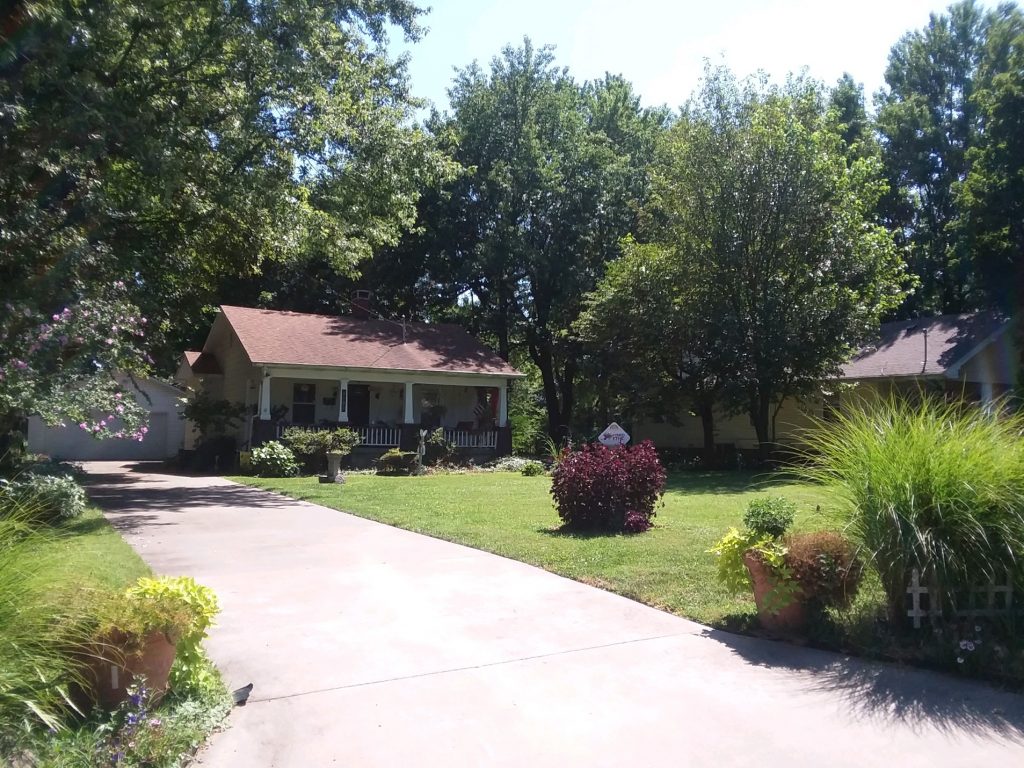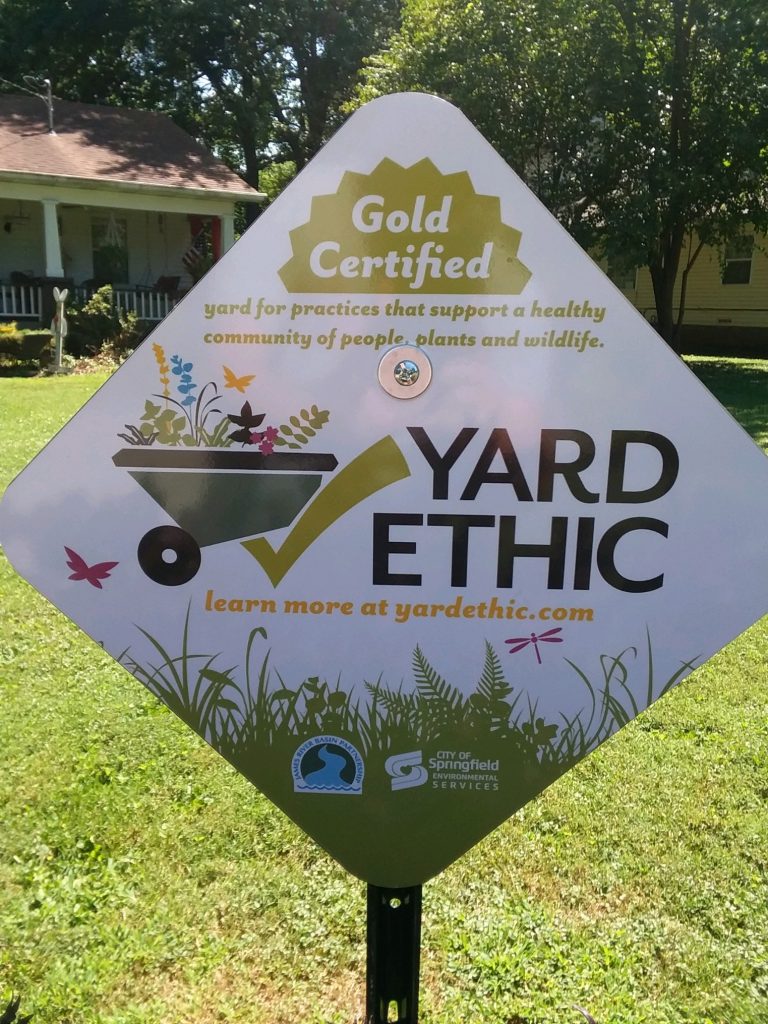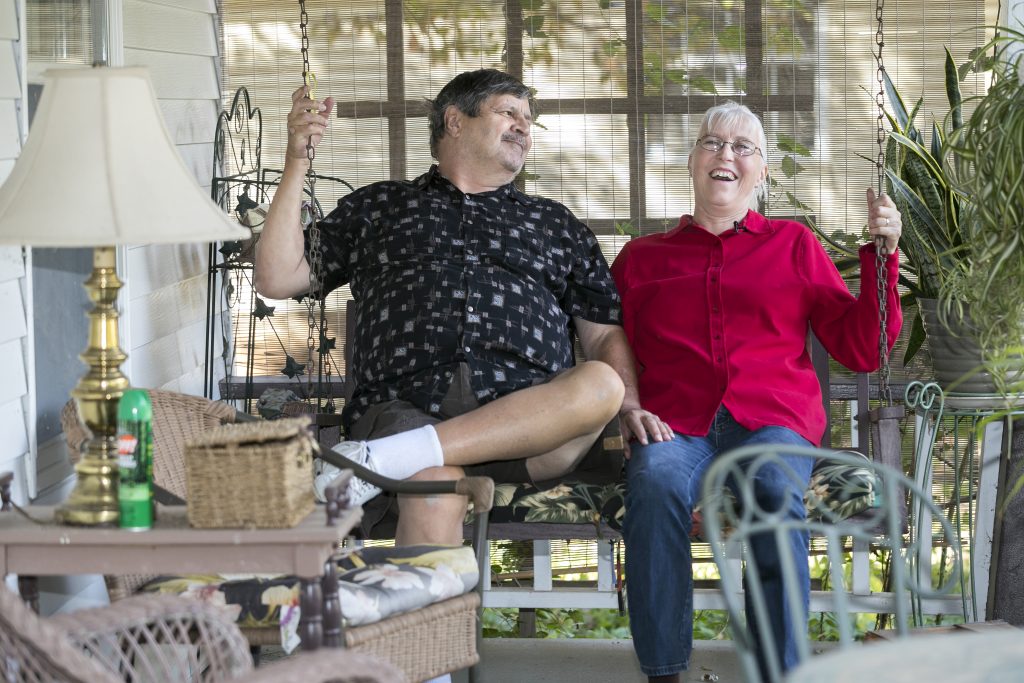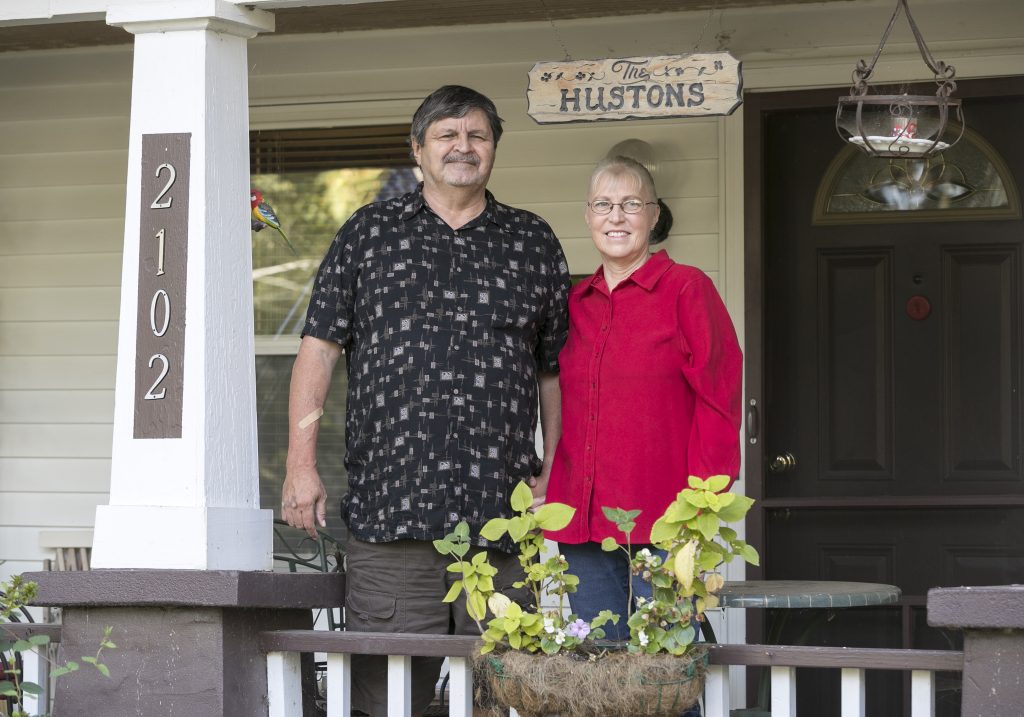Healthier environment, healthier neighborhoods
Westside neighbors encourage ethical yard practices for the good of the community
Jerry and Sandi Huston have lived in their home in the Westside Neighborhood for 20 years, enjoying the sense of community on their block and working to beautify their own little slice of the neighborhood.
An avid gardener, Sandi tends a half-acre lot with fruit trees, berries, grapes, multiple gardens and a small greenhouse.
“I enjoy gardening. I enjoy my yard,” says Sandi Huston. “I had a friend who sent me information about the Yard Ethic program through facebook, saying, ‘This sounds like you. You should do this.’ I took a look and saw I was already halfway to being certified so I took it and ran with it.”
A partnership between the City of Springfield and James River Basin partnership (JRBP), Yard Ethic is a free certification program that encourages and rewards environmentally friendly yard care practices such as planting native plants, installing rain barrels, planting trees and composting organic waste.
“The Yard Ethic program centers around proper practices and connecting our community to a collection of resources and available assistance opportunities,” says Water Quality Compliance Officer Carrie Lamb. “Implementing these practices can help save residents money, beautify yards, conserve water, reduce pollution and create wildlife habitat.”
Residents can join the Yard Ethic community by visiting YardEthic.com and completing three to five practices to become certified Silver or Gold through the program. Once certified, residents can show off their commitment to the environment and spread the word about the program in their neighborhood by displaying a free Yard Ethic plaque.
The Huston’s yard qualified for Gold Level certification through the program, requiring the completion of five checklist items. Their yard features a compost pile, multiple rain barrels and an extensive tree canopy. To round out her certification, Sandi planted a 200-square-foot pollinator garden and completed soil testing through JRBP.
“Completing the certification is fun and it’s beneficial,” Huston explains. “The hardest part was planting the pollinator bed, which took a bit of effort but it’s my favorite garden now. I stuck it out back thinking it was going to be ugly, but it’s just beautiful with all the bees and butterflies buzzing around it.”
“Yard Ethic practices make for a healthier environment for all of us,” says Huston. “It’s healthier for us. It’s healthier for our pets. It’s healthier for the neighborhood.”





